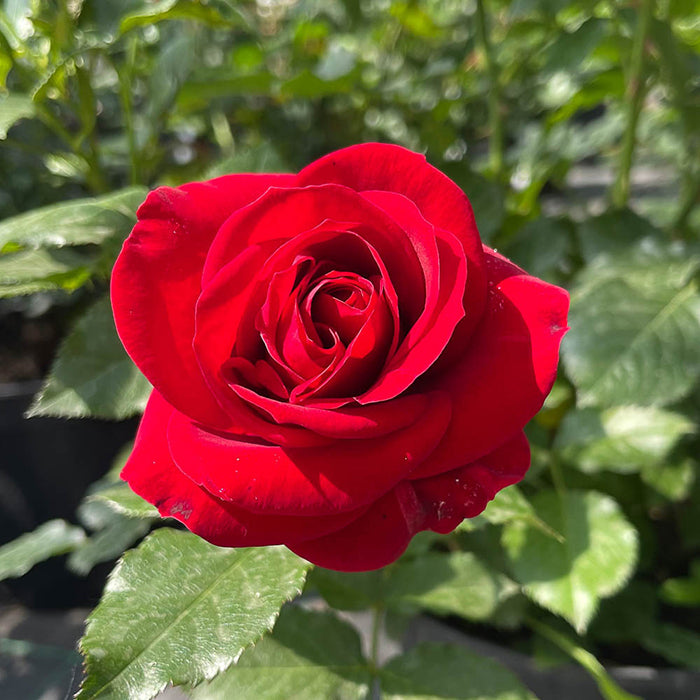
Rose
Share
(Rosa sp.)
The Rosa, known for its delicate petals and intoxicating scent, is a beloved flower often associated with the concept of love. While roses have been cherished for millennia for their beauty and divine scent they offer a lot more than just aesthetic.
Folklore
The Rose is often associated with love, royalty, sensuality, secrecy, and mysticism and is affiliated with self love and opening of the heart space. Traditional rose breeding was known as an art form, breeders use different techniques to prune and mold the Rose to their desired state and even hybridise the Rose. There are approximately 150 different wild species of Rose and around 30'000 species have been cultivated. Unfortunately, because many Roses have been bred for beauty much of their scent and medicinal properties have been lost.
Actions
- Astringent
- Aphrodesiac
- Antioxidant
- Anti-inflammatory
- Anodyne (Pain relieving)
- Relaxing nervine
- Mildly bitter
- Sedative
- Antispasmodic
- Circulatory
- Cardiotonic
Medicinal Uses
The parts of the rose used for medicinal purposes vary by species, with different roses offering different medicinal properties for treating various ailments. Commonly used parts include rose petals, rosehips, leaves, and inner bark, but the specific medicinal properties vary from one species to another.
Roses serve as a heart tonic and a wonderful and gentle digestive aid due to their bitter flavours, is a mild antispasmodic which means they can help to ease tension and relax soft tissue muscles. Tannins are present in roses which give them their gentle astringent properties, herbs with astringent properties tighten the pores and have a drying effect. Rose can bring harmony to the hormonal system and help to balance hormones. Roses are a Soothing & Cooling remedy for the skin. Roses also have sedative actions which can promote relaxation and induce sleep, as well as being a nervine tonic that nourishes and supports the health of the nervous system.
The most common Rose species Used for their medicinal properties are:
- Rosa centifolia
- Rosa damascena
- Rosa alba
- Rosa gallica
- Rosa nutkana
- Rosa rubiginosa
- Rosa rugosa
- Rosa canina
The scent of the rose, its physical beauty, and its medicinal fluidity can help to address our physical, mental, and spiritual health, making it a fantastic medicine for the whole heart, health, and spirit. Rose Petals are beautiful and gentle for the skin and the mind. They can help to reduce inflammation and soothe the nervous system, as well as the skin. They can bring an overall sense of tranquility to the spirit and can be a beautiful aid for our skin health due to their gentle calming anti-inflammatory nature.
Due to Rose's anti-inflammatory properties, it can be a helpful ally for conditions where inflammation is present such as arthritis, bronchitis, ulcers, and wounds.
Energetics
The energetic properties of Rose are cooling and drying. The combination of actions present in Roses can be very helpful for individuals with a dysregulated nervous system, anxiety, a heavy heart, overheating from tension, and clamminess or excess dampness. Roses have nervine properties that can uplift mood and alleviate irritability, anxiety, depression, and insomnia. They also have antispasmodic, aphrodisiac, and sedative qualities. Rose can be a wonderful plant ally for a person with a hot and damp constitution or someone with a heat and dampness imbalance, especially helpful for people with angry, hot skin conditions. Rose can also help regulate menstruation and stimulate digestion. They can bring forward mental clarity and encourage self-love through peace and serenity.
References
- Bartram's Encyclopedia of Herbal Medicine - Thomas Bartram
- Encyclopedia of Herbal Medicine - Andrew chevallier
- The Gift Of Healing Herbs - Robin Rose Bennett
